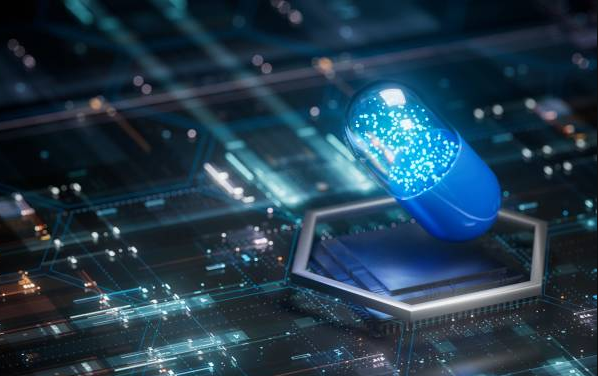Introduction
Artificial Intelligence (AI) is revolutionizing industries across the board, and the pharmaceutical sector is no exception. From accelerating drug discovery to predicting clinical outcomes, AI-driven tools are transforming how pharmaceutical companies develop new treatments. The integration of AI in drug discovery holds the potential to reduce the time and cost of bringing new drugs to market while improving their effectiveness and safety. This transformation is critical as the traditional drug discovery process is often slow, costly, and prone to failure at later stages.
Body
1. AI and Drug Discovery: How Does It Work?
The traditional drug discovery process involves identifying potential compounds, testing them in vitro and in vivo, and conducting clinical trials. This process can take up to 15 years and cost billions of dollars. AI, through machine learning and predictive analytics, can streamline these steps by analyzing massive datasets more quickly and accurately than humans.
Machine learning algorithms can screen millions of compounds in silico to predict which ones are most likely to bind to a target protein. This predictive power allows researchers to focus on the most promising candidates, reducing the need for expensive laboratory testing at early stages.
2. Applications of AI in Drug Discovery
A. Target Identification
One of the first steps in drug discovery is identifying the biological target associated with a disease. AI models can sift through biological data to identify patterns and associations that human researchers might miss. By analyzing genetic, proteomic, and clinical data, AI can suggest new targets for drug development, especially in complex diseases like cancer and neurodegenerative disorders.
B. Compound Screening
High-throughput screening is a crucial part of the early drug discovery process, but it can be slow and expensive. AI-powered models can predict how different compounds will interact with biological targets, allowing researchers to narrow down the number of compounds that need to be tested in the lab. This reduces both time and cost in the early phases of research.
C. Drug Repurposing
AI can also help in the repurposing of existing drugs for new uses. By analyzing the molecular structures and known effects of current drugs, AI systems can predict their potential efficacy against other diseases. This has already shown success in identifying treatments for diseases like Alzheimer’s and various cancers.
D. Predicting Clinical Trial Outcomes
One of the most expensive and time-consuming parts of drug development is the clinical trial phase. AI can analyze past clinical trial data to predict outcomes, identify patient subgroups most likely to benefit from the drug, and even suggest optimal trial designs. This improves the chances of success in clinical trials and helps companies avoid costly late-stage failures.
3. AI Platforms Leading Drug Discovery
Several companies and platforms are leading the charge in integrating AI with drug discovery:
- Insilico Medicine: Uses AI to predict new targets and generate novel drug candidates for diseases like cancer and fibrosis.
- Atomwise: Specializes in AI-based drug discovery, particularly using deep learning to predict the binding affinities of small molecules to protein targets.
- BenevolentAI: Combines AI with large-scale data analysis to identify new drug targets and accelerate the drug development process.
These platforms leverage AI to significantly reduce the time needed to identify promising drug candidates and move them through preclinical development.
4. Challenges of AI in Drug Discovery
A. Data Availability and Quality
AI relies heavily on high-quality data to make accurate predictions. In drug discovery, much of the available data may be incomplete or inconsistent, especially when it comes to rare diseases where patient samples are limited. Ensuring access to clean, structured data is critical to AI’s success.
B. Interpretability of AI Models
AI models, especially those based on deep learning, are often seen as “black boxes” where the decision-making process is not entirely transparent. In a regulated field like pharmaceuticals, where patient safety is paramount, regulatory agencies need to understand how AI models reach their conclusions. This lack of interpretability can slow down the approval of AI-driven drug development methods.
C. Ethical Considerations
As AI becomes more prevalent in healthcare and pharmaceuticals, ethical considerations such as data privacy, bias in algorithms, and the role of human oversight come into play. Ensuring that AI models are free from bias and that patient data is handled responsibly are important challenges to address.
5. The Future of AI in Pharmaceuticals
AI is set to play an even more significant role in the pharmaceutical industry. Here are some of the future applications:
- Precision Medicine: AI can enable more personalized drug therapies by predicting how individual patients will respond to certain treatments based on their genetic profiles.
- AI-driven Automation: Automation powered by AI can handle routine tasks such as data entry, reducing human error and freeing researchers to focus on complex analysis.
- Collaborative Drug Discovery: AI can facilitate collaboration across pharmaceutical companies, academic institutions, and healthcare organizations by providing a common platform for sharing data and insights.
As AI continues to evolve, it will likely become an integral part of every stage of drug development, from research and discovery to clinical trials and beyond.
Conclusion
Artificial intelligence is revolutionizing drug discovery by accelerating the identification of new drug candidates, predicting outcomes, and reducing the cost of development. While there are challenges such as data availability and model interpretability, the potential benefits of AI in pharmaceuticals far outweigh the risks. As the technology continues to improve, AI will likely become a cornerstone of drug development in the coming decades, making healthcare more efficient and treatments more personalized.
References:
- Artificial Intelligence in Drug Discovery by Nathan Brown.
- The AI Revolution in Drug Discovery by Alex Zhavoronkov.
- Mak, K. K., & Pichika, M. R. (2019). Artificial intelligence in drug development: present status and future prospects. Drug Discovery Today, 24(3), 773-780.
- Ekins, S., Puhl, A. C., Zorn, K. M., Lane, T. R., & Braga, R. C. (2019). Exploiting machine learning for end-to-end drug discovery and development. Nature Materials, 18(5), 435-441.
